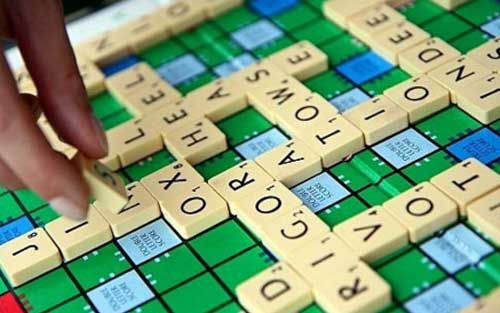情态动词(Modal verbs)本身有一定的词义,表示语气的单词。但是不能独立作谓语,只能和动词原形一起构成谓语。下面小编告诉你英语中的情态动词及其用法,大家一起来看看吧!
英语中的情态动词及其用法:
1. shall 的用法:
shall表示征求对方意见(多用于第一、三人称),如:Shall we go out for a walk? 我们出去散步好吗?
在英语中,我们可以用其他多种方式提出我们的建议或征求对方意见。
(1).用“Let's do...”来提出建议。如:Let's go for a walk after supper.
(2).用“What/How about...?”来提出建议;about后接名词或动词ing形式。如:What about/How about a drink? What about/How about taking Tom with us?
(3).用“Why not...?”来提出建议,表示“何不……”not面后接动词原形。“Why not...?”实际上是“Why don't you/we...?”的简略形式。如:Why not meet at the school gate at eight? Why don't we stay here another day?
(4).用“Would you like...?”来提出建议,意思是“你想要……吗?”Would you like后可接名词或不定式。如:Would you like a cup of tea? Would you like to go and see her?
因此,如果我们说:“去游泳好吗?”英语中可有这样几种表达法:Shall we go for a swim? Let's go for a swim,shall we? What about/How about going swimming? Why not go for a swim? Would you like to go for a swim? What do you think of going for a swim?

2. should的用法:
(1).should 意为“应该” ,可表示劝告、建议、义务、责任等。 如:We should protect the environment. 我们应该保护环境。
(2)Should have done 表示对过去动作的责备、批评。如:You should have finished your homework.
你应该已经完成作业了。(事实上你没有完成。)
3. will 的用法:
will表示意愿、意志、打算,可用于多种人称。如:I will help you if I’m free this afternoon.今天下午如果我有空,我就会帮你。
注意:
(1)、will在there be句型中的形式及其句式变换。
由于“一般将来时”的结构可以用“will+动词原形”来表示,所以there be句型的一般将来时的形式就是there will be。(一定不能说there will have)例如: There are many students in our school. →There will be many students in our school. There will be a sports meeting next week. 一定不能说:There will have a sports meeting next week.
(2)、will 与be going to do sth区别:
①. be going to 表示近期、眼下就要发生的事情,will 表示的将来时间则较远一些,如:He is going to write a letter tonight. He will write a book one day.
②. be going to 表示根据主观判断将来肯定发生的事情,will表示客观上将来势必发生的事情。He is seriously ill. He is going to die. He will be twenty years old.
③. be going to 含有“计划,准备”的意思,而 will 则没有这个意思,如: She is going to lend us her book.
He will be here in half an hour.
④.在有条件从句的主句中,一般不用 be going to, 而多用will, 如: If any beasts comes at you, I'll stay with you and help you
4.had better 的用法:
had better 意为“最好”,没有人称的变化,后面接不带to 的不定式,其否定形式为:had better not。如:
We had better go now. 我们最好现在就走。You had better not give the book to him.你最好不要把这本书给他。
情态动词must用法归纳:
1. 表示“必须”“一定要”,用法注意:
(1) 可用于肯定句、否定句或疑问句;用于否定句时,mustn’t 意为“一定不要”“(可)不能”。如:
You must phone him this evening. 今天晚上你必须给他打电话。
You mustn’t phone him this evening. 今天晚上你可不能给他打电话。
Must I phone him this evening? 我今天晚上必须给他打电话吗?
注意,回答must引起的一般疑问句,如果要作否定回答,一般是用 needn’t(不能用 mustn’t)。如:
A:Must I go there today? 我必须今天去吗?
B:Yes, you must. 是的,你必须今天去。
B:No, you needn’t. 不,你不必今天去。
(2) 含有 must 的陈述句,其反意问句有两种可能:若must表示“必须”,反意问句用 mustn’t;若 must 表示“有必要”,反意问句用 needn’t,但是由于在没有上下文的情况下,很难分清must是表示“必须”还是表示“有必要”,所以有时两者都可用。如:
You must go there at once, needn’t [mustn’t] you? 你必须(有必要)马上去那儿,不是吗?

2. 表示推测,意为“准是”“一定是”,注意以下用法:
(1) 对现在情况作推测,后接动词原形;对现在正在进行的情况作推测,后接动词进行式;对一直在进行的情况作推测,后接动词完成进行式;对过去已发生的情况作推测,后接动词完成式。如:
The man must have a lot of money. 这个人一定有不少钱。
He must be writing a letter to his girl friend. 他一定在给他女朋友写信。
Someone must have been smoking here. 一定有人一直在这里抽烟。
I must have read that in some book. 我一定是在某一本书上读过这个的。
比较以下各句:
He must be rich.(现在)他一定很有钱。
He must have been rich.(当时)他一定很有钱。
He must know the result.(现在)他一定知道结果。
He must have known the result.(当时)他一定知道结果。
He must be waiting for us. 他一定在等我们。
He must have been waiting for us. 他一定一直在等我们。
must 表示对现在情况的推测后接动词原形时,该动词通常为状态动词(如be, have, know 等),若为动作动词,通常要转换其他说法。如:
He is sure to succeed意思是“我肯定他会成功”。
他肯定会把他的女朋友带来。
正:He is sure to bring his girlfriend.
误:He must bring his girlfriend.
此误句若视为正句,则表示:他必须把女朋友带来。
(2) 表示推测的 must 通常只用于肯定句,在否定句或疑问句中要用 can 代之。如:
If this is true, that must be false. 如果这个是真的,那个必然是假的。
She can’t be your daughter. 她不可能是你女儿。
If winter comes, can spring be far behind? 冬天来了,春天还会远吗?
(3) 表示推测用于反意疑问句时要注意,反意问句的助动词不能用must,而要根据其后动词的形式来决定。如:
He must be mad, isn’t he? 他一定是疯了,不是吗?
He must have gone home, hasn’t [didn’t] he? 他准是回家去了,是吗?
He must have left here yesterday, didn’t he? 他一定在昨天就离开这儿了,不是吗?
当“must+have+过去分词”不连用具体的过去时间状语时,反意问句通常用完成式,有时也用过去时;但是若连用了具体的时间状语,通常只用过去时。
3. 有时表示巧合,说明某事发生得不早不迟,就在某个当紧的时候,多指某些不受欢迎的事情的发生,在汉语中通常译为“偏偏”。如:
Just when I was busy, the neighbor must come and chatter. 正当我忙碌的时候,邻居偏偏过来聊天。
John must choose the day I had company coming, to start painting the bathroom. 约翰偏偏选择我有客人来这天油漆浴室。
有时表示主观上的偏执或固执,常可译为“偏”“偏要”。如:
Why must she be so nasty to me? 为什么她偏对我这样恶劣?
After I gave her my advice,she must go and do the opposite. 在我给她出主意之后她偏要反着干。
有时可译为“非要”“非得”“硬是”“硬要”等。如:
Must you make so much noise? 你就非得弄出这么大的声音吗?
Why must you always interrupt me? 你为什么硬是老要打断我?
情态动词 can 与 could 用法归纳:
1. 表示能力,could 是 can 的过去。如:
Can you speak English? 你会说英语吗?
Could you speak English then? 那时候你会说英语吗?
2. 表示许可,注意以下用法:
(1) 对于现在或将来的“许可”,要区分以下两种情况:
a. 表示请求允许(即请求别人允许自己做某事),可用 can(=may)或 could(=might)(注意:这里的 could 并不表示过去,而是表示现在,只是语气较委婉)。如:
Can [May, Could, Might] I come in? 我可以进来吗?
b. 表示给予允许(即自己允许别人做某事),一般只用 can(=may),而不能用 could 或 might。如:
A: Could [Can] I use your pen? 我可以借用你的钢笔吗?
B: Yes, of course you can. 当然可以。(注意: 此处不用 Yes, you could)
(2) 对于过去的“许可”,也要区分以下两种情况:
a. 表示过去一般性允许(即表示某人随时都可以做某事),用 can的过去式(即 could)。如:
When I lived at home, I could watch TV whenever I wanted to. 我住在家里时,想什么时候看电影就可以什么时候看 (一般性允许)。
b. 表示过去特定的允许( 即表示在过去某一特定情况下允许进行某一活动),则不用 could, 而需换成其它表达(如:had permission或 was [were] allowed to)。如:
I was allowed to see the film yesterday evening. 昨天晚 上允许我去看了电影(特定的允许,所以不能用 could)。
3. 表示推测:
(1) 对现在或将来的推测,can 通常只用于否定句或疑问句中,一般不用于肯定句:
It can’t be true. 那不可能是真的。
What can they be doing? 他们会在干什么呢?
Can it be Jim? 那会是吉姆吗?
但 could(可以表示现在)则可用于肯定句中:
We could [may, might] go to Guilin this summer. 今年夏天我们可能要去桂林。(将来可能性)
You could [may, might] be right, but I don’t think youare. 你可能是对的,但我并不认为你是对的。(现在可能性)
注意:can 有时也用于肯定句中表示推测,这主要见于:
a. 表示理论上的可能性(即从理论上或逻辑上分析是可能的,但实际未必会发生)。如:
Anybody who wants to can become a prison visitor. 只要愿意,任何人都可以到监狱去帮助解决犯人的困难。
Mary is in poor health. She can be ill at any time. 玛丽的身体不好,她随时都可能会生病。
Evem experienced teachers can make mistakes. 即使是有经验的教师也可能出错。
b. 后接“be, get, seem, become+形容词”,表示“有时会”、“时常会”等义。如:
It can get very hot here. 这里有时会很热。
She can be very unpleasant. 她有时很令人讨厌。
My grandmother could be very unpleasant at times. 我祖 母有时候会让人非常不愉快。
(2) 对过去的推测,必须在 can, could 之后接动词的完成式:
a. can+have+过去分词(主要用于否定句或疑问句,一般不用于肯定句)。如:
I saw him just now;he can’t have gone to Japan. 我刚刚见过他,他不可能到日本去了。
Why does he know this? Can someone have told him about it?
他怎么知道? 会是哪个人告诉他了吗?
b. could+have+过去分词(可用于肯定句、否定句或疑问句),主要用于:
①表示对过去的推测,其意为“可能(已经)……”。如:
He could have gone home. 他可能已回家了。
Where could he have gone? 他会到哪里去了呢?
He couldn’t have seen her there. 他不可能在那儿见到她。
②表示过去没有实现的可能性(即某事本来可以发生,但却没有发生),意为“本来可以……”。如:
He could have told her, but he didn’t choose to. 他本来可以告诉她的,但他没有这样做。
③用来委婉地责备某人过去应该做某事而没有去做,意为“本来应该……”。如:
You could have helped him. 你本来应该来帮助他的。
④表示“差点儿就要”。如:
I could have died laughing. 我差点儿笑死了。
情态动词may与might的用法说明:
1. 表示允许
(1) 表示请求允许,两者都可用。might表示的语气比may委婉。如:
—May / Might I speak to you for a few minutes, please? 我可以和你交谈几分钟吗?
— Yes, you may. 可以。
—May I go there? 我可以去那儿吗?
—No, you must not. 不,你不准去。
I wonder if I might call you by your first name? 不知能否叫你的名字?
I’d like to ask a question if I may. 如果可以的话,我想提个问题。
(2) 表示给予允许,通常要用 may而不用might。如:
It’s five o’clock – you may go home now. 四点了,你现在可以回家了。
You may not smoke here. 你不可在此吸烟。
2. 表示推测
两者都可用,只是 might 比 may 语气更不确定,表示的可能性更小。
(1) might / may+ 动词原形, 表示对现在或将来的推测,如:
The news may be true. 这个消息或许是真的。
I’m afraid it might rain tonight. 我想今晚也许下雨。
(2) might / may+ 动词进行式,表示动作正在进行或将要发生, 如:
He may / might be working. 他可能在工作。
They may / might be leaving for England next month. 他们可能在下个月去英国。
(3) might / may+动词完成式。
①表示对过去可能发生的事进行推测,如:
She may / might have been hurt. 她也许受了伤。
He may / might have sent a letter to another man. 说不定他会给另一个人写信。
②might+完成式,还可表示过去某事可能发生而实际上却并没发生,如:
He might have given you more help, even if he was very busy. 即使他当时很忙,也可以给年更多帮助。
注意may和can表推测时的区别:
can和may均可表示推测,may表事实上的可能性,can表逻辑上的可能性。两者均可用于否定句,但是含义不同:cannot意为“不可能”,may not意为“可能不”。如:
Michael can’t be a policeman, for he’s much too short. 迈克尔不可能是警察,因为他个头太矮了。
John might mot come by car. He likes taking train. 约翰可能不乘车来。他喜欢坐火车。
3. may 用于表示愿望和希望
May you have a pleasant trip! 祝你路途愉快!
May there never be another world war! 但愿永不再有世界大战!
4. may / might as well
意为“还是…为好” 、“不妨”,如:
I might as well give the sweet course a miss. 这道甜食我还是不吃了吧。
There’s nothing to do, so I may / might as well watch TV. 既然没什么事可做,我还是看电视好了。
与“英语中的情态动词及其用法”相关文章
赞(0)
12
12
分享:

